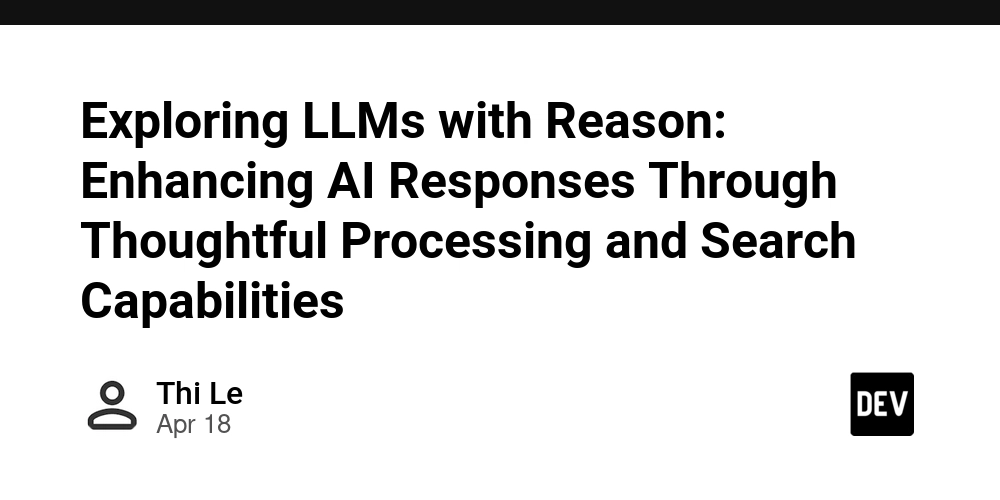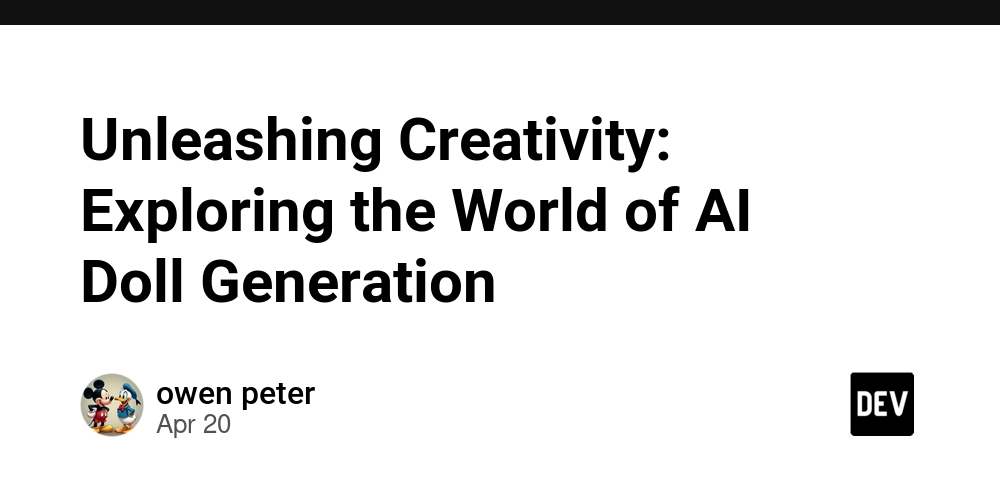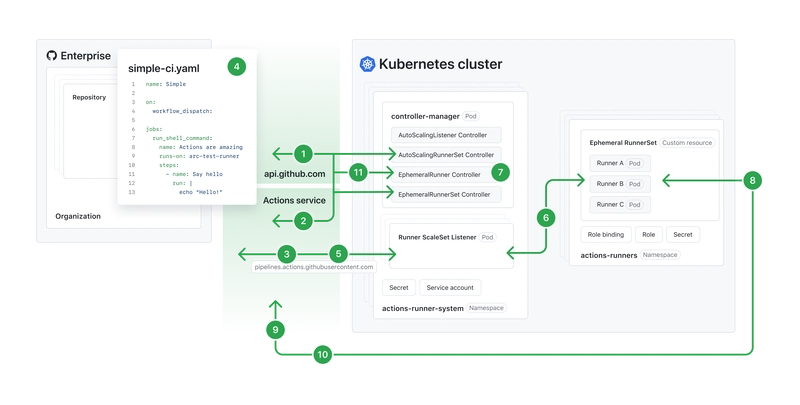Exploring LLMs with Reason: Enhancing AI Responses Through Thoughtful Processing and Search Capabilities
Large Language Models (LLMs) have transformed the way we interact with technology. However, there’s an ongoing conversation about how to enhance their effectiveness. Two promising strategies are 'Thinking Before Responding' and 'Search Mode.' Thinking Before Responding This approach emphasizes the importance of reflection before generating a response. By implementing reasoning layers, LLMs can evaluate context, confirm understanding, and generate more precise outputs. This way, they avoid common pitfalls like irrelevant answers or misconceptions. For instance, suppose a user asks a complex question about climate change. An LLM utilizing the 'Thinking Before Responding' strategy might first identify key terms, assess the factual correctness of its training data, and structure a response that is not only informative but also contextualized. This approach can lead to responses that feel more personalized and less like a regurgitation of memorized data. Search Mode Imagine if, instead of relying solely on pre-existing knowledge, LLMs could seamlessly integrate real-time information. This is where 'Search Mode' comes into play. By enabling LLMs to perform web searches in real-time, they can pull in the latest data and trends. For example, if a user is looking for the latest advancements in renewable energy technology, an LLM equipped with 'Search Mode' can scour recent articles, studies, and reports to provide the user with the most current and relevant information. Not only does this elevate the quality of responses, but it also broadens the range of topics the LLM can confidently address. Combining Both Approaches Integrating 'Thinking Before Responding' with 'Search Mode' could yield a new generation of LLMs that not only understand the nuances of language but are also equipped with up-to-date knowledge. This fusion could potentially mitigate misinformation while delivering authoritative answers tailored to the user's query. Conclusion The future of Large Language Models is bright, especially when we incorporate strategies that prioritize deep thinking and accurate sourcing. As developers and researchers continue to refine these models, the potential for smarter, more reliable interactions grows exponentially. It is an exciting time to be involved in the AI community, and we are only scratching the surface of what’s possible with LLMs. Feel free to share your thoughts on this dual approach and any other strategies you think could enhance LLMs!

Large Language Models (LLMs) have transformed the way we interact with technology. However, there’s an ongoing conversation about how to enhance their effectiveness. Two promising strategies are 'Thinking Before Responding' and 'Search Mode.'
Thinking Before Responding
This approach emphasizes the importance of reflection before generating a response. By implementing reasoning layers, LLMs can evaluate context, confirm understanding, and generate more precise outputs. This way, they avoid common pitfalls like irrelevant answers or misconceptions.
For instance, suppose a user asks a complex question about climate change. An LLM utilizing the 'Thinking Before Responding' strategy might first identify key terms, assess the factual correctness of its training data, and structure a response that is not only informative but also contextualized. This approach can lead to responses that feel more personalized and less like a regurgitation of memorized data.
Search Mode
Imagine if, instead of relying solely on pre-existing knowledge, LLMs could seamlessly integrate real-time information. This is where 'Search Mode' comes into play. By enabling LLMs to perform web searches in real-time, they can pull in the latest data and trends.
For example, if a user is looking for the latest advancements in renewable energy technology, an LLM equipped with 'Search Mode' can scour recent articles, studies, and reports to provide the user with the most current and relevant information. Not only does this elevate the quality of responses, but it also broadens the range of topics the LLM can confidently address.
Combining Both Approaches
Integrating 'Thinking Before Responding' with 'Search Mode' could yield a new generation of LLMs that not only understand the nuances of language but are also equipped with up-to-date knowledge. This fusion could potentially mitigate misinformation while delivering authoritative answers tailored to the user's query.
Conclusion
The future of Large Language Models is bright, especially when we incorporate strategies that prioritize deep thinking and accurate sourcing. As developers and researchers continue to refine these models, the potential for smarter, more reliable interactions grows exponentially. It is an exciting time to be involved in the AI community, and we are only scratching the surface of what’s possible with LLMs.
Feel free to share your thoughts on this dual approach and any other strategies you think could enhance LLMs!










































































































































































![[The AI Show Episode 144]: ChatGPT’s New Memory, Shopify CEO’s Leaked “AI First” Memo, Google Cloud Next Releases, o3 and o4-mini Coming Soon & Llama 4’s Rocky Launch](https://www.marketingaiinstitute.com/hubfs/ep%20144%20cover.png)


















































































































![[DEALS] The All-in-One Microsoft Office Pro 2019 for Windows: Lifetime License + Windows 11 Pro Bundle (89% off) & Other Deals Up To 98% Off](https://www.javacodegeeks.com/wp-content/uploads/2012/12/jcg-logo.jpg)





































![Is this too much for a modular monolith system? [closed]](https://i.sstatic.net/pYL1nsfg.png)






















































































































_Andreas_Prott_Alamy.jpg?width=1280&auto=webp&quality=80&disable=upscale#)
































































































![What features do you get with Gemini Advanced? [April 2025]](https://i0.wp.com/9to5google.com/wp-content/uploads/sites/4/2024/02/gemini-advanced-cover.jpg?resize=1200%2C628&quality=82&strip=all&ssl=1)













![Apple Shares Official Trailer for 'Long Way Home' Starring Ewan McGregor and Charley Boorman [Video]](https://www.iclarified.com/images/news/97069/97069/97069-640.jpg)
![Apple Watch Series 10 Back On Sale for $299! [Lowest Price Ever]](https://www.iclarified.com/images/news/96657/96657/96657-640.jpg)
![EU Postpones Apple App Store Fines Amid Tariff Negotiations [Report]](https://www.iclarified.com/images/news/97068/97068/97068-640.jpg)
![Apple Slips to Fifth in China's Smartphone Market with 9% Decline [Report]](https://www.iclarified.com/images/news/97065/97065/97065-640.jpg)




































































































































